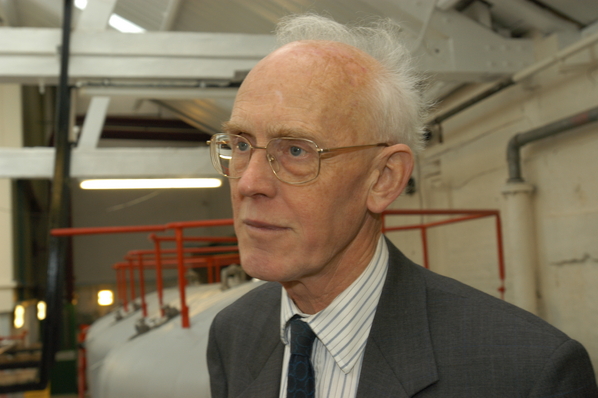Reg Drury, a cask beer hero
Added: Monday, June 15th 2015

Reg Drury, who has died aged 76, was a passionate supporter of cask beer. His painstaking work as head brewer at Fuller’s in Chiswick, West London, from the 1970s ensured that it was rare to be served a poor pint of the brewery’s beer.
It’s a truism in the world of brewing and pubs that one glass of cask beer that’s sour and cloudy will put drinkers off for life and lead them into the cold embrace of Eurofizz. Reg was aware of the problem when he arrived at Fuller’s in the late 1950s. He’d trained at the acclaimed school of brewing at Heriot-Watt University in Edinburgh. He knew not only how to brew beer of all types and styles but was skilled also in maintaining the consistency and quality of the end product.
It was difficult to achieve consistency at Fuller’s at the time. Brewing had been going on at the site for some 350 years, with the partnership of Fuller, Smith & Turner dating from 1845. Cask beer was produced in open square fermenters, some of which were more than 100 years old and leaked. Finding a clear and tasty pint of Fuller’s cask ale in a pub was something of a gamble.
This was the dread age of such national keg beers as Watneys Red, Double Diamond and Worthington E. The directors of Fuller’s toyed with the idea of going over entirely to keg and lager production, and in 1976 installed modern, enclosed conical fermenters to make these types of beer.
It was widely believed in the industry at the time that cask beer couldn’t be brewed in conicals because top-fermenting ale yeast would mutate into bottom-fermenting lager yeast, settling at the base of the vessels. Reg Drury was determined to save Fuller’s cask beers. Along with Charles Wells in Bedford, which had also installed conicals, Reg analysed the new vessels and came to the conclusion that if you adjusted temperatures and regularly used fresh batches of ale yeast it would be perfectly possible to produce cask beer in them.
Chiswick Bitter, London Pride and Extra Special Bitter pre-dated Reg’s time at Fuller’s. But, without fear of contradiction, it can be said that his work in perfecting their quality and consistency in the conicals turned them in to successful and greatly admired beers. Each has been named Champion Beer of Britain in CAMRA’s annual awards. ESB won the title in 1978, 81 and 85 and has also won the Strong Ale category in the championship seven times, more than any other beer. The acclaim for ESB has spread worldwide. It’s a special category in beer competitions in the United States and beers labelled ESB are now produced as far away as Australia.
Reg’s dedicated skill in turning Fuller’s into a thoroughly modern brewery that’s also steeped in history and tradition has turned the company into one of the most successful independent producers in the country. It brews 250,000 barrels a year, of which 150,000 are in cask form.
Reg was also an innovator. As John Keeling, his successor as head brewer, stresses, Reg dug deep into the Fuller’s recipe books to reclaim the likes of London Porter, and he also had the foresight to develop bottle-conditioned beers of the highest quality.
When he launched 1845 in 1995 and Vintage Ale two years later, sales of bottled beer were falling off the cliff. But Reg believed naturally-conditioned beers, bursting with rich malt and hop flavours, would appeal to discerning drinkers. He wanted good beer to be treated with the reverence given to wine.
His prescience can be judged by the boom in bottled beers in recent years. It’s now a vibrant sector with several thousand beers in bottle-conditioned form. It’s unlikely that Tesco would have commissioned a bottle-fermented golden ale from Marston’s without the pioneering work of Reg Drury.
Reg was a quiet and unassuming man but his legacy is enduring. He was a “brewer’s brewer” but his passion for good beer in both cask and bottle should ensure that his work will long be celebrated by those of us who stand on the drinkers’ side of the bar.






